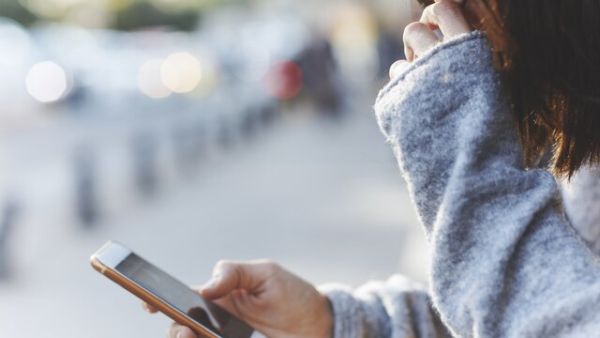ALBAWABA - Experts are warning about the dangers of spending extended hours browsing social media platforms due to the associated health and mental issues, especially concerning the brains of teenagers.
Writer Reda Ibrahim, through the newspaper "Al Jazeera," highlighted a series of health problems associated with this behavior:
Symptoms (Possibility):
This refers to the gradual need to spend more time online until reaching the desired level of engagement.
With the diminishing continuous enjoyment of this behavior, withdrawal symptoms emerge as individuals experience symptoms when they stop accessing the web.
This cessation leads to a form of impairment in social and professional activities, causing individuals to struggle with work and interpersonal interactions.
Hand Tremors:
Accompanied by tension, anxiety, and intense mental preoccupation with web pages and their content.
It has been observed that when a person initially starts using Facebook, they are satisfied with a short amount of time, approximately an hour, which is enough to feel pleasure.
However, with repeated use, this gradually transforms from traditional curiosity to a strong sense of needing more.
This is followed by a loss of self-control and an inability to curb the urge, as the person becomes consumed by this excessive curiosity, seeking to recreate the initial pleasure and experiencing moderate mood changes when starting Facebook use.
Eventually, when they stop visiting the sites they were accustomed to, withdrawal symptoms set in, bringing about mood swings, heightened anxiety, severe stress, excessive nervousness, and sometimes feelings of lethargy, laziness, and reduced activity.
Psychological Effects on Adolescents and Adults:
Studies have primarily focused on the negative psychological effects of social media platforms, especially on children and teenagers.
A significant number of female teenagers who use social media have shown a noticeable decrease in self-esteem, and some have developed negative self-perceptions.
Some have developed eating disorders due to dissatisfaction with their bodies, while others experience psychological pressure, shyness, and fear of being exploited by others based on their past experiences.
The writer warns that the negative effects of social media platforms are not limited to teenagers and children; even adults have experienced these negative consequences.
One study investigated the impact of Facebook on university students, randomly selecting a sample of 400 university students.
The results indicated that a large number of them admitted to the negative effects of Facebook on their academic performance.
The same study also revealed that university students are drawn to addiction and frequent participation on Facebook due to feelings of loneliness and boredom, especially when transitioning from high school to university. They are in constant interaction with strangers, exchanging information and conversations.
Some prefer to share their real information, including their name, address, and personal photos. A smaller percentage prefers to communicate through Facebook with close friends.
However, the majority, exceeding 50%, emphasized their openness to strangers, consistently engaging in conversations, sharing movies, and various programs.
Facebook Addiction:
The writer also cited research conducted by psychologists, sociologists, and counseling experts on the results of Facebook addiction cases.
Some individuals have reported sleep and eating disorders due to Facebook addiction. CBS News reported a high percentage of children experiencing sexual harassment through social media, particularly Facebook, leading to various psychological disorders such as anxiety and depression. Some were even directly threatened.
The more significant issue identified in the study was that over 40% of the targeted children willingly provided their real personal information to unknown individuals on Facebook.
The writer also warned of a significant concern raised by some doctors and neurology experts. They have indicated that children may be negatively affected by using these platforms, exchanging movies or videos, spending excessive time, and focusing intensely on device screens, which can lead to brain cell damage.
Senior experts in the field of neurological disorders at the University of Oxford have stated that spending prolonged periods using tablet devices can have an impact on the brain's electromagnetic pathways.
This phenomenon has been widely observed in several cases involving children, leading to issues with concentration and communication. A significant number of them have also experienced severe difficulties in learning mathematics and language.
Another study conducted by the Australian Psychological Society revealed a high percentage of individuals under the age of 30 experiencing psychological crises, primarily anxiety and stress. These are natural consequences of the psychological experiences they undergo while addicted to Facebook.
Exploitation through Pornography:
The writer also warned about the targeting of a large group of children and teenagers by fake investment companies, deceiving them into viewing pornographic materials. These materials have a profoundly negative impact on their behavior, and some have been influenced, threatened, and explicitly asked for sexual exploitation or blackmail, under the threat of revealing their identities to the public.
This exploitation led them into a closed circle, surrounded by fear, anxiety, and worry, resulting in what is scientifically known as "post-traumatic stress disorder." Some experienced extreme isolation or even suicide.
880 Billion Selfies:
In 2014, the selfie phenomenon reached its peak, with around 880 billion selfies taken during the same year, averaging 123 selfies per person on land.
The selfie trend has been subject to various interpretations. A study conducted by the American Psychiatric Association indicated that the widespread and sharp spread of this phenomenon among young people suggests a mental disorder among its addicts, escalating to chronic cases.
The study diagnosed a case of an active Facebook user who lost control over himself due to an intense desire to constantly photograph himself and share pictures on social media platforms at least six times a day on a continuous basis.
The researchers coined the term "Selfie-itis," referring to a pathological condition characterized by an intense obsession with self-photography, taken to an excessive degree.
This term also described an attempt to compensate for a lack of self-confidence and intimacy issues, revealing signs of narcissism driving individuals to showcase themselves and impose themselves on others due to their deep self-admiration.
In a society that interacts through social media platforms, a psychological condition has emerged, enabling people to easily present themselves without needing any skills, whether physical or cultural, and avoiding embarrassment in front of an audience they fear due to a constant sense of inadequacy.
Moreover, the need for self-affirmation may lead individuals to drown in this state, seeking attention whenever they feel the need for it and displaying themselves in a noticeable manner. Selfies and Narcissism:
Similarly, a study conducted in the United States, similar to the previous one, revealed a link between selfie behavior and narcissism, excessive self-interest.
The study involved 800 individuals aged 18 to 40, analyzing the volume of their selfie activities posted on their Facebook pages, in addition to other personality assessment tests.
Experts confirmed that individuals engaged in taking selfies and spending considerable time editing and posting them on Facebook tend to focus more on themselves. They believe they are more intelligent and attractive than others. This behavior is also associated with issues of insecurity, reckless behavior, lack of empathy, and lack of consideration for others, as well as some anti-social traits and an inclination to exaggerate their self-worth.
Psychologists at Priory Hospital in London have warned that taking numerous personal photos might not only indicate an addiction to self-photography but also be an initial indicator of body dysmorphic disorder. This disorder leads to psychological consequences such as depression and self-harm due to dissatisfaction with one's appearance. It was proven that two out of three individuals addicted to selfies experience body distortion disorders.







